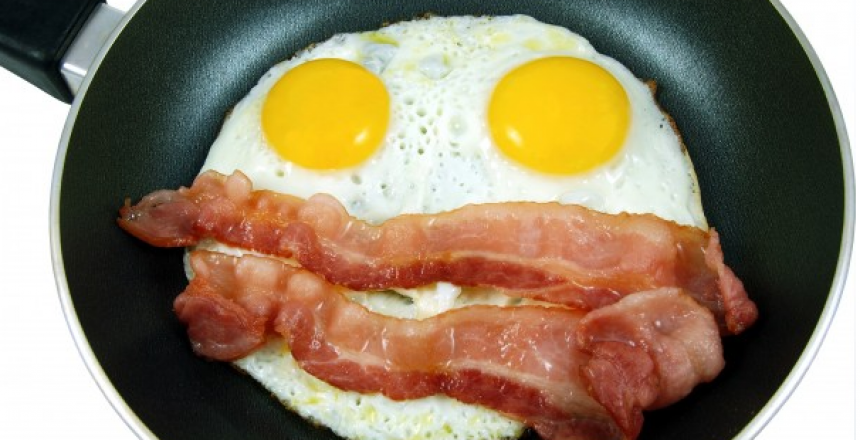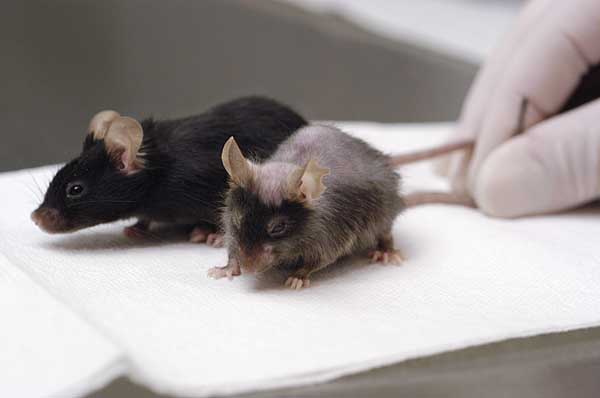Fasting and calorie restriction fight aging
Perhaps the most well-known and efficient anti-aging intervention in lab animals is calorie restriction, in which restricting food by 30% or more causes an increase in lifespan, sometimes by as much as 50%.
Intermittent fasting has most or even more of the benefits of calorie restriction. Since fasting animals or humans eat as much as those feeding ad lib – they just eat at different times – intermittent fasting avoids some potential problems associated with calorie restriction, such as frailty or weakened immune systems.
The anti-aging mechanism behind both calorie restriction and fasting is thought to be a reduction in growth hormone and IGF-1 levels. (Although there’s a good case to be made that reduction of iron levels may be involved and could even be more important.)
It appears that low-carbohydrate and/or ketogenic diets can produce many of the same anti-aging effects of fasting and calorie restriction. The evidence and how to implement follows.
Low-carbohydrate diet mimics fasting for anti-aging
A recent study took a look at type 2 diabetics who undertook either a 3-day fast or a zero carbohydrate diet for the same length of time.(1) The study was done to try to elucidate the mechanism of the beneficial effects of a low-calorie diet on blood glucose in diabetics, which could be due to a) weight loss; b) low calorie intake; or c) lower carbohydrate intake. A previous study had found that a “crash diet” can cure diabetes in a very short time.
After 3 days of fasting, glucose and insulin dropped dramatically in these diabetics, by 49% and 69% respectively. But they also dropped on the low-carbohydrate diet, although not as much, the researchers calculating that 71% of the glucose response to fasting was due to the absence of carbohydrate.
So, most of the response to fasting came from the mere absence of carbohydrates.
In another study, volunteers either fasted for 84 hours (3.5 days), or fasted and received a lipid infusion designed to meet all caloric needs.(2) “Changes in plasma glucose, free fatty acids, ketone bodies, insulin, and epinephrine concentrations during fasting were the same in both the control and lipid studies.”
The authors conclude, “These results demonstrate that restriction of dietary carbohydrate, not the general absence of energy intake itself, is responsible for initiating the metabolic response to short-term fasting.” I would have liked to have seen a measurement of IGF-1 as well, but the results do indicate that restricting carbohydrates alone gives most or all of the same benefits as fasting.
One study did measure IGF-1, this time using a very low carbohydrate ketogenic diet for 7 days.(3) (There was no fasting control group, but the study did measure the same biomarkers after two weeks of refeeding.)
On low-carb eating alone, IGF-1 dropped massively, by 45%, after only 7 days. (The subjects also lost nearly 3 kg of body mass.) This indicates that the ketogenic diet has great potential as an anti-aging intervention.
In a clinical setting, patients who went on a very low-carbohydrate ketogenic diet for 90 days saw a reduction in insulin of 40%.(4) Despite the diet being designed to provide the same amount of calories as their previous diets, body weight dropped 8%, or about 7 kg on average.
Taken together, these studies show that cutting carbohydrates produces favorable changes in anti-aging parameters, comparable to those seen with fasting.
One parameter we didn’t see in the above studies was autophagy, which decreases with age, and the increase of which has profound anti-aging effects. But it’s known that very low carbohydrate diets can increase autophagy.(5)
Low carbohydrate may be easier to implement than fasting
Fasting has the disadvantage that many people don’t seem to be able to do it. At least some of the time, it entails feeling hungry.
A very low carbohydrate ketogenic diet can produce most of the anti-aging effects of fasting, only without the hunger.
How do you implement a ketogenic diet? In essence, it’s simple: don’t eat carbohydrates. That means no sugar, anything made with flour such as bread, pasta, pastries, and breakfast cereal, and no starchy vegetables such as potatoes. No tortillas, no fruit juice or soda pop.
Meals consist of meat, eggs, cheese, butter, coconut oil, nuts, yogurt (without sugar), non-starchy vegetables (such as broccoli or green leafy vegetables in salads), etc. An excellent guide to the ketogenic diet, what it is, and what it does, is by Stephen Phinney and Jeff Volek, The Art and Science of Low Carbohydrate Living.
For more on fasting, ketosis, and anti-aging, see my book Stop the Clock: The Optimal Anti-Aging Strategy.














22 Comments
Great article as always. As you rightly point out, many people simply cannot cope with the coldness/hunger brought on by intermittent fasting.
Personally, I’ve become used to it, and I’m much happier doing a 16/8 protocol and keeping a moderate amount of carbs in my diet – I simply like them too much! Presumably best of all would be an intermittent fasting ketogenic diet.
I did try to go keto for a month a couple of years back – I’m not sure if I gave my body enough chance to adjust properly, but I was just so weak in the gym with little glycogen in my muscles. My lifting really suffered. Does your body begin to synthesise glycogen via a different mechanism after a while on a ketogenic diet?
Hi Simon, same here, I’ve come to enjoy my fasting. Most people won’t even give it a shot – it’s considered deeply weird to go more than 2 hours without food.
I haven’t noticed any difference in gym performance myself whether I’ve been eating carbs or not. In any case, if carbs are not in the diet, glucose and glycogen are made from protein in a process called gluconeogenesis, and if there’s no protein, it can be made from glycerol, the backbone of triglycerides.
I should perhaps have emphasized in the article that for most of the benefits, ketosis isn’t necessary – *any* restriction of carbs has benefit.
I would like to say that I have SIBO and don’t eat carbs, following a mainly high protein diet and I have developed sarcopenia. I am so weak I can’t lift weights although I was never sedentary to start with. When I looked up what weightlifters do to build muscle, they eat carbs. My blood work is impeccable, no inflammation, cholesterol is great, weight is great but my muscles have suffered.
My concern with ketogenic diets is that they might actually make things worse UNLESS you continue on them forever. Since I’m not considering such a diet right now, I haven’t done any research on what happens long term if/when you revert to a less restrictive diet. Any thoughts?
I’m not aware of any adverse effects from cycling through ketosis, in fact it could conceivably be better than being in one or the other state all the time.
Off topic but I think you’ll enjoy this if you haven’t seen it:
https://www.youtube.com/watch?v=9_cDv9j7MVg
She gets into caloric restriction and intermittent fasting increasing lifespan via FOX regulation proteins at around 35 minutes.
A companion piece:
https://healthfully.wordpress.com/category/understanding-health/
Woops. This is the link:
https://healthfully.wordpress.com/2015/08/12/living-healthy-to-160-part-i/
Sorry to be a party pooper, but not everyone gets good results from low carb eating. I did this several years ago when I was afraid I was becoming diabetic, and it was one of the poorer decisions I’ve ever made. I ended up with all sorts of hypothyroid symptoms – sleeping 10 to 12 hours a day, yawning excessively throughout the day, low body temperature, cold hands and cold feet even when wearing multiple pairs of socks, hair falling out. And I can’t say this was necessarily a direct result, but it did happen at this time: my first (and only) bout of angina leading to a visit to the ER and placement of a stent in a clogged artery. I might try fasting but will never go back to low carb.
Not everyone anything. That’s rule #1.
Although I’ll bite. How long did you restrict CHO? To what level? What did your dietary fat intake jump to? What kind of fat?
It takes some people weeks to get to dietary ketosis. What was your fasting blood sugar? Did you measure fasting BHB? What were the levels in the am on average?
My experiment went on for maybe three quarters of a year. I ate whole fat dairy products (not milk though), fats were coconut oil, butter, olive oil. I ate meat, salads, various cooked veggies, eggs, etc., no grains, very little if any carbs. I might have eaten an occasional banana. My fasting blood sugar was not good – always over 100, and my AC1 was over 6 . What was interesting is that I’m usually a somewhat hyper person. In the beginning this diet was very pleasant — I was able to relax, reduce my assertiveness while driving, not jump to conclusions or react badly when somebody said something I didn’t like. But over the next months, I got the symptoms I mentioned above. Too bad, because I loved the meals I made myself.
Hmmm… I’d say do it while benefits last and then stoop when they don’t no?
And if you can maintain your insulin sensitivity eating 100-150g CHO do it. Why not?
Maybe this is too fast a conclusion, but I was thinking that since they often include moderate to large amounts of carbs, vegetarian or vegan diets are not conducive to a long life. This sounds like a paradox, no? But perhaps the kind of carbs also matter: there are good and bad carbs, right?
Vegan diets are interesting from the point of view of longevity. With their low protein content, they may lower IGF-1 and thus conduce to long life. On the other hand, the same low protein content may conduce to sarcopenia, osteoporosis, and dementia. As for the carbs, it probably depends on how the diet is implemented; after all, pasta and Coca-Cola qualify as vegan, and that would not be healthy at all. Even things like rice are going to raise blood sugar and insulin. But if you eat nothing but non-starchy vegetables it will be difficult to get enough calories.
Most “vegans” I know don’t eat vegetables. They’re carbotarians. High starch. Tofu based meat simulacrums figure prominently. Jack in the Box tacos “cause they’re soy!”.
I have been on a low-carb diet consistently for two weeks now and have also Implemented IF to my everyday routine. I’ve noticed that I feel mental clarity as well as an increased energy.
Thank you for your knowledge.
Regards,
Sergie
I would recommend Dr. Stephen Simpson talk on Macronutrient ratios and aging(https://www.youtube.com/watch?v=x0-Jt7az-54&t=13m35s). His research actually points to the opposite conclusion.
Some of the newest research points a way to understand some of what Mark Sanders is describing and shows that the assumption of a low carb and high protein intake diet specifically of meat if not always the way to low insulin levels and associated life extension: Frett et al in November AJCN studied 50,345 Caucasians and demonstrated that consumption of meat was associated with elevated fasting glucose and insulin and further demonstrated that a person’s SNPs regarding foods and carbohydrates are of critical importance in determining what sort of a diet is best for that person. So, many of the high protein ideas of the “paleo” diet are based on incorrect information. A person’s genetic make up is key here and needs to be assessed to determine a dietary plan. Many people may do much better on a high carb diet rather than a high protein diet.